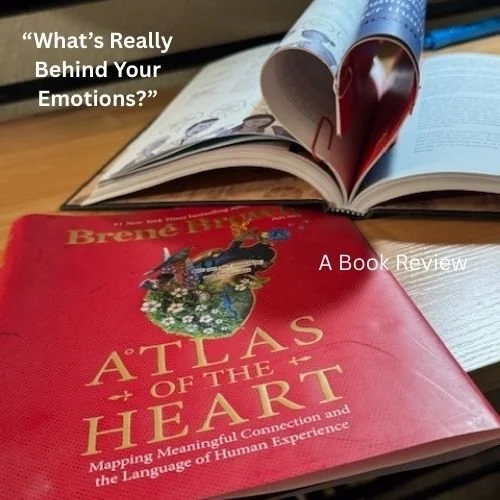💔 Apology, Forgive, and Forgiveness
A Deep Dive into Ownership, Healing, and Human Connection
By The Cynical Romantic — Where passion meets poor judgment
Forgive Me? No Thanks — Let’s Talk About Why That Rubbed Me Wrong
She said, “Please forgive me.”
And just like that, the conversation ended — but my brain didn’t. I stood there, stunned. Not by heartbreak (though, fine, that too), but by the absurdity of being asked to grant something I hadn’t even processed yet. Who was she to ask for forgiveness before I’d even had time to feel the sting?
That single word — forgive — sent me into a quiet spiral of questions I couldn’t shake. So, naturally, I did what any emotionally self-aware, slightly overthinking romantic would do: I blogged about it. This isn’t a rant (Well, maybe a little bit). It’s a reflection. A deep dive into why apology, forgiveness, and accountability often get tossed together in the same emotional soup when they’re really separate ingredients entirely.
Apology: The Gateway to Accountability
An apology is more than a polite social script — it’s an act of ownership. A true apology acknowledges harm, expresses remorse, and commits to change. Psychologist Harriet Lerner reminds us that real apologies aren’t about defending ourselves; they’re about standing in the discomfort of having caused pain. “A heartfelt apology,” she writes, “is an essential ingredient in the repair of hurt and betrayal. It’s a gift to the person you’ve harmed — and to yourself.” [1]
Dr. Janis Abrahms Spring adds another layer: apologies should be given without the expectation of instant forgiveness. True repair, she says, is a collaborative process built on patience, empathy, and honesty [2]. Look, if genuine apologies are supposed to be delivered without expecting an immediate gold star of forgiveness, then I guess I should stop checking my emotional inbox every five minutes for a "You’re forgiven!" notification.
As someone who still apologizes to my houseplants for neglecting them, I’m learning—awkwardly and with far more coffee than wisdom—that real healing doesn't come with a set of instructions or a grace period. Turns out, sitting in the mess together and not bolting for the nearest metaphorical exit is the only way forward. Cynical as I am, maybe there’s hope: if we can survive the discomfort (and my tendency to say sorry to inanimate objects), maybe we can actually figure out what moving on looks like—preferably with fewer emotional participation trophies and a little more patience.
Forgive: The Act of Letting Go (Without Losing Your Mind)
Forgiveness isn’t a participation trophy for surviving pain; it’s the quiet decision to stop letting resentment rent space in your head. Dr. Frederic Luskin, founder of the Stanford Forgiveness Project, defines forgiveness as “the ability to make peace with the word no — with the fact that you didn’t get what you wanted.” [3] His research — along with Dr. Everett Worthington’s REACH Forgiveness Model — shows that forgiveness reduces stress, boosts resilience, and even improves physical health. It’s not about excusing the hurt; it’s about rewriting how your brain stores it.
Of course, if forgiving was as easy as updating your mental operating system, we’d all be running Forgiveness 11 by now — bugs patched, resentment uninstalled. Both Luskin and Worthington seem to agree that forgiveness is less about giving the other person a free pass and more about finally reclaiming the peace of your own mind (with zero annual subscription fees). Maybe the real secret is that forgiveness doesn’t require you to be a saint, just a little bit less of a grudge-hoarder and a little more willing to let the emotional baggage carousel keep spinning without grabbing every suitcase that rolls by.
Forgiveness: A Gift, Not a Transaction
Forgiveness, the noun, is what happens when letting go turns into grace. And here’s where things get messy: forgiveness can’t be demanded — only offered. Asking someone to forgive you implies a transaction: “I apologized, now you owe me peace.” But healing doesn’t work on a rewards program. The injured person has to choose when, or if, they’re ready. Brené Brown said it best: “Apologizing is not the same as making amends. Forgiveness is not owed — it’s earned, and even then, it may not come.” [4]
The Psychology of Forgiveness (aka Why Your Brain Keeps Bringing It Up)
Forgiveness is deeply tied to emotional regulation — how we manage the storms inside our heads. Studies show that forgiving others reduces rumination, anger, and depression, while increasing empathy and psychological strength. A 2020 study in Frontiers in Psychology proposed that cognitive reappraisal — reframing negative experiences — is the bridge between emotional strength and forgiveness [5]. In plain English? The ability to see pain from a new angle helps your mind heal.
Dr. Worthington’s REACH model adds that forgiveness is both a mindset and a habit:
Recall the hurt (without dramatics).
Empathize (without excuses).
Altruistically forgive (without obligation).
Commit (without fanfare).
Hold on to that decision when old feelings sneak back.
Both approaches agree — forgiveness isn’t passive; it’s an intentional act of emotional discipline.
Forgiveness and Trauma Recovery
Here’s where things get delicate: in trauma recovery, forgiveness isn’t required. Therapist Amanda Ann Gregory cautions that forcing forgiveness can actually harm survivors — shifting focus from the abuser’s actions to the survivor’s supposed obligation to “let it go.” [6] Healing doesn’t require forgiving the person who hurt you. It requires forgiving yourself for surviving in ways you had to. So, it’s really about owning up to the ways you learned to deal—maybe you shut down, got snappy, dodged tough talks, or made choices you wish you could take back. We all have our go-to survival moves, even if they weren’t perfect.
These responses were your mind and body’s way of protecting you in a situation that felt unsafe or overwhelming. True healing involves recognizing that these survival tactics were necessary at the time, letting go of shame or self-blame for them, and allowing yourself the compassion to move forward without judgment for how you made it through.
And let’s be honest, you’re absolutely not required to hand it out before your first cup of coffee. Most important of all, healing doesn’t hinge on forgiving the person who hurt you. Despite what the world might preach, you can absolutely find your own path to recovery without ticking off that box—and sometimes, that’s the bravest thing you can do.
Theological Perspectives (For Those Who Still Pray Between Breakups)
The Old Testament made forgiveness conditional — bound to ritual, justice, and sacrifice. The New Testament flipped the script. Jesus preached forgiveness as an act of unconditional grace, not transaction.
“Forgive us our debts, as we forgive our debtors.” — Matthew 6:12
“Father, forgive them, for they do not know what they are doing.” — Luke 23:34
Christ didn’t tell us to ask others for forgiveness. He told us to repent, to change. To love our enemies without expecting applause.
Which is honestly the hardest commandment of all — right after “love thy neighbor,” especially when they keep stealing your parking spot.
Living with Integrity and Respect (Even When It’s Uncomfortable)
Apology, forgive, and forgiveness — three distinct, powerful acts that shape how we love, lose, and repair. Mel Robbins, patron saint of practical wisdom, nails it:
“You are not responsible for what happened to you. But you are responsible for what you do next.” [7]
Apology is ownership.
Forgive is release.
Forgiveness is grace.
By not asking for forgiveness, we honor others’ autonomy. We make amends without demanding emotional labor. We learn to sit in discomfort without expecting applause. And maybe, just maybe, that’s the purest form of respect there is.
Final Reflection: The Space Between Hurt and Healing
The reflection of a healthy heart; your heart when you learn to forgive yourself.
Forgiveness still feels complicated to me. Maybe it always will. But somewhere between heartbreak and hindsight, I learned that asking for forgiveness isn’t a shortcut to peace — it’s a detour around accountability.
If I’ve hurt someone, I owe them ownership, not an emotional IOU.
If someone’s hurt me, they owe me space, not an expectation.
So no, I didn’t forgive her that day. Not immediately. But I did start forgiving myself — for confusing closure with kindness, forgiveness with resolution, and love with neat endings.
Sometimes, love ends with a question.
And sometimes, that’s the start of healing.
🧠 Sources & Further Reading
Harriet Lerner, Why Won’t You Apologize? — https://harrietlerner.com/books
Janis Abrahms Spring, How Can I Forgive You? — https://www.janisabrahmsspring.com/
Frederic Luskin, Forgive for Good — https://learningtoforgive.com
Brené Brown, Atlas of the Heart — https://brenebrown.com
Frontiers in Psychology, “A Regulatory Model of Forgiveness,” 2020 — https://www.frontiersin.org/journals/psychology
Amanda Ann Gregory, LCSW — https://amandaanngregory.com
Mel Robbins, https://melrobbins.com
🧄 Bonus Section: Essential Oils
Clove oil — for “I’m not bitter, I’m seasoned.”
Rosemary — because clarity smells better than closure.
Patchouli — allegedly grounds you; realistically just masks regret.
Lavender — for when you’ve over-apologized and need to nap through the guilt.
Apply liberally to pulse points, boundaries, and your next dating app bio.





